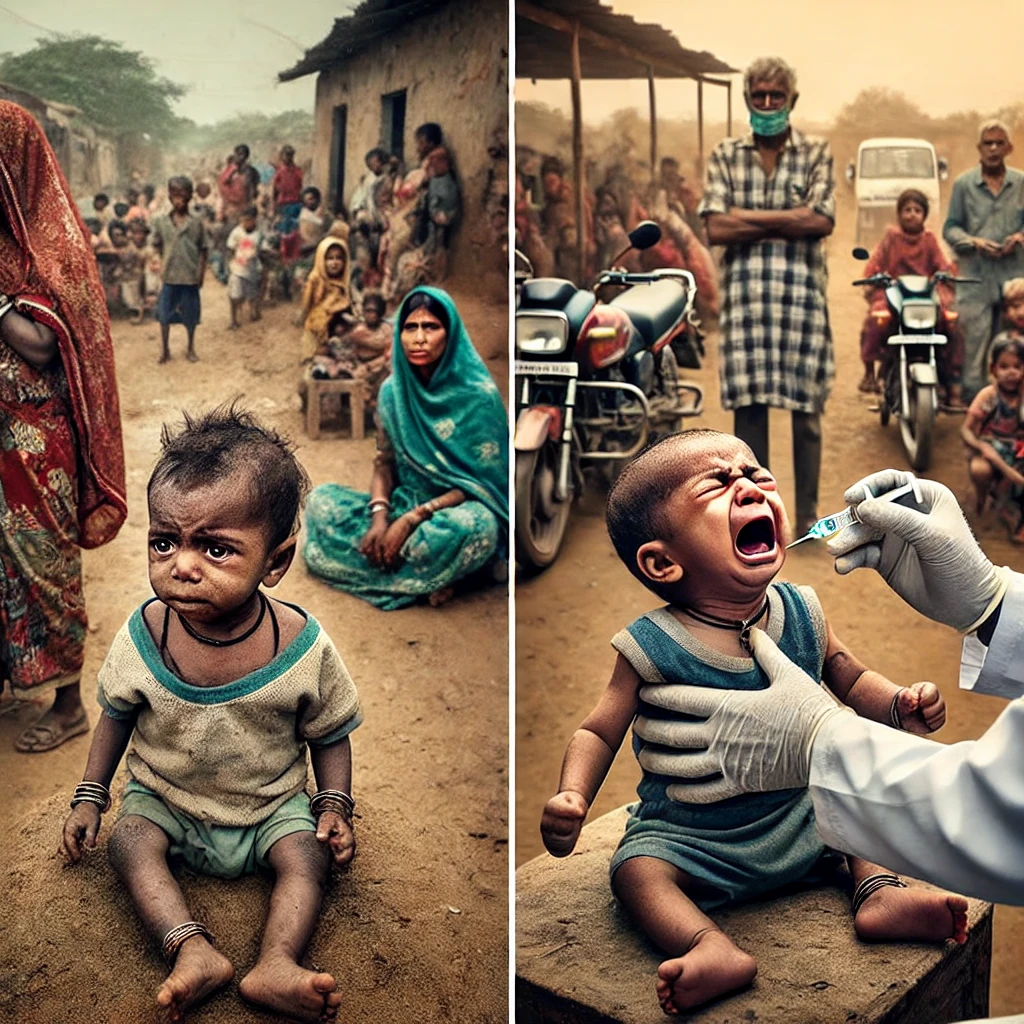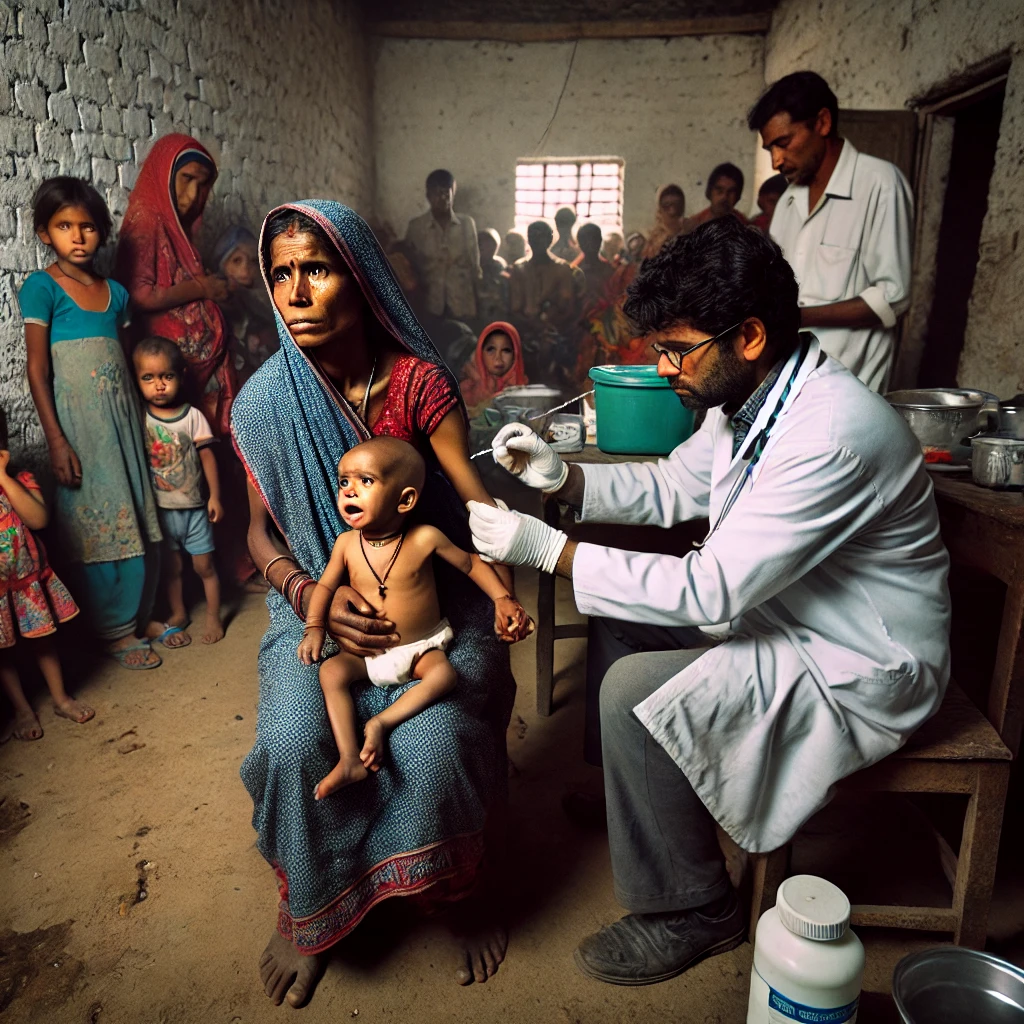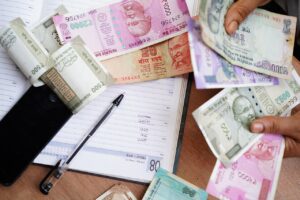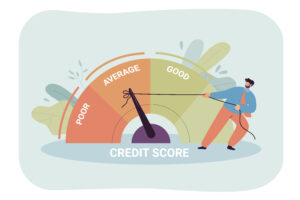The Heartbreaking Impact of Poverty on Childhood Immunization in Poor Low and Middle-Class Families
A Silent Struggle for Every Child’s Future
Imagine a parent holding their child, hoping to protect them from harm, only to realize their empty wallet is standing in the way. Childhood immunization—the simplest shield against deadly diseases—remains out of reach for millions of children across India’s poorest communities.
Poverty isn’t just about lack of money; it’s a thief of opportunities, including timely healthcare. Families in rural villages, tribal regions, and semi-urban settlements face overwhelming struggles to access life-saving vaccines. The result? Delays, missed schedules, and vulnerable children at risk of illnesses that could easily be prevented.
Before Proceeding on the topic of:-The Heartbreaking Impact of Poverty on Childhood Immunization in Poor Low and Middle-Class Families, we have to Understand About Childhood Vaccination
At Ourfinocracy.com, we understand that no child should pay the price for poverty. Let’s explore this deeply human issue, its root causes, and how we can come together to change the narrative.
Before Proceeding on the topic of:-The Heartbreaking Impact of Poverty on Childhood Immunization in Poor Low and Middle-Class Families. WH have to Understand About Childhood Vaccination
Table of Contents
Why Childhood Vaccination is a Lifesaver

Vaccines are more than just shots—they are life-saving tools that ensure a healthier future. Measles, polio, hepatitis, and diphtheria are names we rarely hear today, thanks to immunization efforts. But for children in poor families, these diseases remain a constant threat because vaccines come too late, or not at all.
Every missed vaccine is a missed chance at survival.
“A child without vaccines is like a home without a roof—vulnerable and exposed to the storm.”
Impact of Poverty on Childhood Vaccination
Financial Barriers: The Unseen Cost of Immunization
For families living hand-to-mouth, every rupee counts. While government vaccines are free, getting to the clinic isn’t. A day’s journey for immunization can mean:
- No daily wages for parents.
- Transportation costs they can’t afford.
- A gamble between feeding their family or protecting their child.
| Barrier | Impact on Children |
|---|---|
| Transportation costs to clinics | Missed or delayed vaccination schedules |
| Fear of losing wages during clinic visits | Delays that expose children to fatal diseases |
| Lack of healthcare resources in rural areas | Higher child mortality and vulnerability |
A harsh truth: Poor families often know the importance of vaccines but cannot overcome the financial barriers standing in their way.
Vaccine Hesitancy: Misinformation Rooted in Inequality
Imagine a small rural village where whispers carry weight. Myths and misinformation about vaccines often spread faster than truth. Many parents, particularly from Dalit and tribal communities, hesitate to immunize their children due to fear and misunderstanding.
Human Story:
Take Ramesh, a father in rural Bihar. He refused to vaccinate his son because he heard that vaccines cause fever and “bad luck.” It wasn’t until a health worker explained how vaccines protect lives that he agreed. Today, his son plays happily, free from illnesses that once haunted his village.
The Harsh Reality of “Zero-Dose” Children
Over half of India’s poorest children remain “zero-dose children”—kids who have never received a single vaccine. Tribal areas, slums, and migrant worker families are disproportionately affected. Poverty, isolation, and lack of awareness leave these children vulnerable.
| Group Most Affected | Key Risk |
|---|---|
| Tribal and migrant communities | High exposure to preventable diseases |
| Urban poor living in slums | Low immunization due to accessibility gaps |
Government Initiatives: A Lifeline for Vaccination Gaps
India has launched life-changing programs to improve childhood immunization rates:
Mission Indradhanush: Protecting the Vulnerable
This program specifically targets underserved regions, including rural, tribal, and semi-urban areas, ensuring every child is vaccinated on time.
- Read About:-How ESIC Helps Poor and Middle Class Families?
Universal Immunization Programme (UIP): Free Vaccines for All
UIP ensures that vaccines for infants and pregnant women are provided free of cost in government hospitals. Yet, families still need support to overcome transportation and awareness challenges.
Ayushman Bharat Scheme: A Ray of Hope
For families struggling with poverty, this program offers financial support for healthcare, reducing the burden of treatment costs.
| Program | Purpose |
|---|---|
| Mission Indradhanush | Focus on vaccinating children in remote areas |
| Universal Immunization Programme | Free vaccines for infants and mothers |
| Ayushman Bharat Scheme | Healthcare assistance for low-income families |
Middle-Class Struggles: The Hidden Crisis

Even middle-class families face barriers. While they are comparatively better off, rising healthcare costs and lack of trust in public clinics often push them towards expensive private hospitals.
Challenges Faced by Middle-Class Families
- Healthcare Costs: Private clinics charge hefty fees for vaccines.
- Limited Awareness: Many semi-urban families remain unaware of government vaccination drives.
When expenses grow faster than incomes, even middle-class parents face impossible choices: prioritize immediate needs or invest in long-term health.
How We Can Bridge the Gap: Solutions for a Healthier Tomorrow
1. Financial Support for Families
Governments and NGOs can step in to cover transportation costs and compensate for lost wages so families don’t have to choose between survival and vaccination.
2. Awareness Campaigns
Knowledge is power. Educating parents about the importance of vaccines through health workers, social media, and community programs can combat misinformation.
3. Incentives for Completing Immunizations
Cash rewards, free food grains, or school supplies can motivate families to complete vaccination schedules on time.
“Every child deserves the chance to grow up healthy, regardless of how much money their parents have.”
Vaccines: The Quiet Heroes Saving Millions of Lives
The World Health Organization estimates that vaccines prevent up to 5 million deaths each year. Smallpox has been eradicated, and polio is on the brink of extinction—all because of vaccination.
Poem to Reflect Hope:
“A tiny needle, a powerful shield,
In every village, in every field.
From weary hands to brighter days,
Vaccines promise life in countless ways.”
Call to Action: Together, We Can Protect Every Child
Poverty must not decide whether a child gets vaccinated. Governments, healthcare workers, and communities must stand together to ensure that no child—whether from a poor or middle-class family—misses their life-saving vaccines.
At Ourfinocracy.com, we believe in empowering families through knowledge and financial solutions. Let’s work together to create a world where every child has the chance to thrive.
Conclusion: Immunization is Every Child’s Right
Now we can say The Heartbreaking Impact of Poverty on Childhood Immunization in Poor Low and Middle-Class Families, has a devastating effect on our Society.
No child should lose their future to preventable diseases because of poverty. By breaking down financial barriers, combating misinformation, and fostering awareness, we can ensure that vaccines reach every corner of the country.












